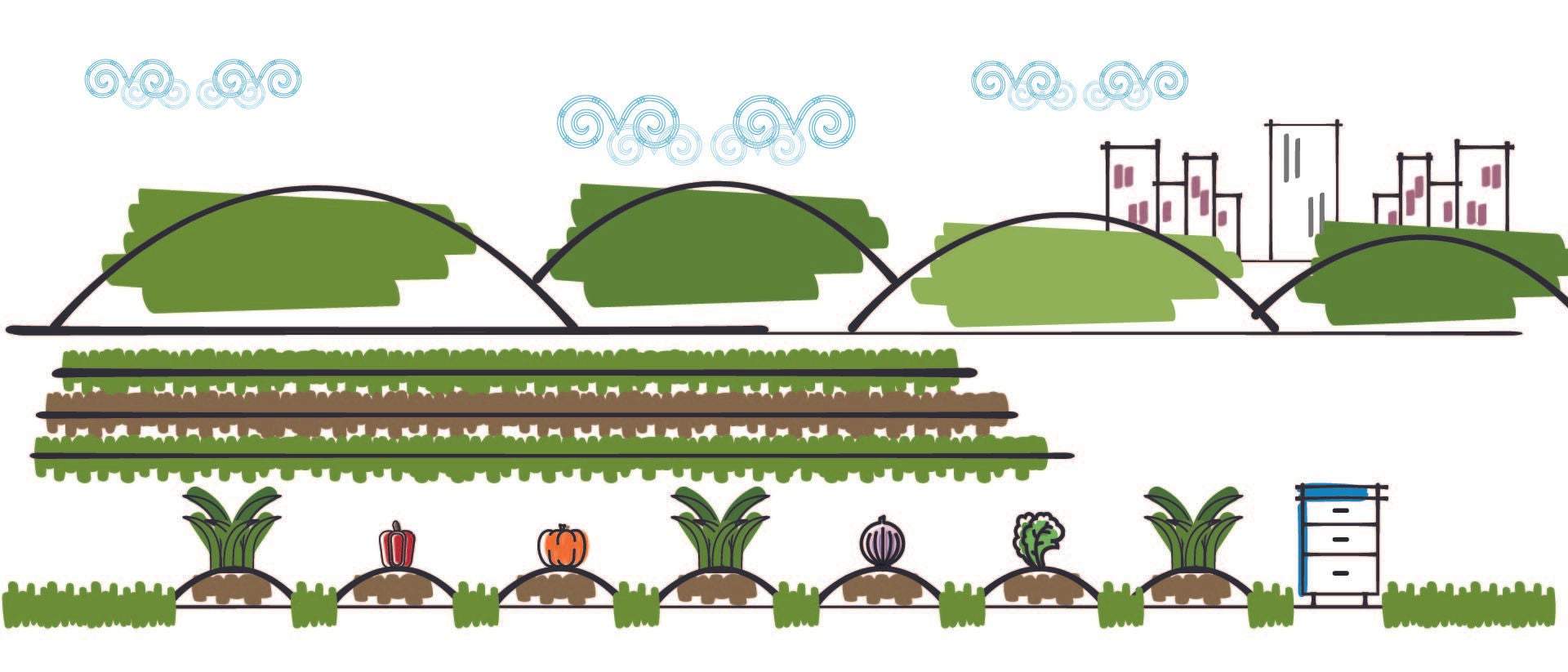He kai kei aku ringa. / There is plenty with my hands.
Why this is a priority
In our region we benefit from a temperate climate and high proportion of arable land that enables year-round food production.
However, recent events have demonstrated the importance of food security A situation that exists when all people, at all times, have physical, social and economic access to sufficient, safe and nutritious food that meets their dietary needs and food preferences for an active and healthy life., with imports, exports and domestic supply chains The sequence of processes involved in the production and distribution of a commodity.directly impacted by the COVID-19 pandemic and prices fluctuating significantly.

Food consumption emissions
Our food system makes up 18 per cent of our consumption emissions The production and discharge of something e.g. the production and discharge of greenhouse gases into the atmosphere.in Auckland. Consumption emissions come from food production, transport, processing and disposal to landfill.
According to the World Resources Institute, globally, food loss and waste generates more than four times annual greenhouse gas emissions Gases emitted to the atmosphere which contribute to the greenhouse gas effect, in which more than the normal amount of atmospheric heat is retained in the atmosphere. These emissions include water vapour, carbon dioxide, nitrous oxide, methane, ozone, halocarbons and other chlorine and bromine-containing substances. than aviation. This is comparable to emissions from road transport.
Climate change affects food production
Climate change will affect food production with:
- longer periods of drought
- more intense storms and flooding
- increasing number of pests and diseases.
This is already happening around the world, affecting availability and affordability of imports.
A low-carbon, climate resilient local food system is based on a regenerative, circular economic model.
This approach:
- minimises or avoids synthetic fertilisers and pesticides
- eliminates food waste from landfills
- makes the most of surplus food to feed people, plants and animals.
As identified by our rangatahi Youth, younger generation., we need to reconnect people of all ages to where our sustenance comes from - how it grows and how we can be more resilient when we understand this.
Importance of local food production
Local, sustainable food production can secure our food supply and reduce emissions. We need to restore, rejuvenate and replenish mahinga kai Food-gathering place (rivers, bush, sea, gardens etc.).– our soils and ecological systems that support the production and gathering of food.
Our ability to meet future demand faces many pressures. In addition to climate impacts A marked effect or influence of climate change., we are seeing rapid population growth and a loss of productive soils from unsustainable farming methods and land development.
Preserving productive soil
Only one per cent of Auckland’s soils are considered Class 1 (elite) and suitable for vegetable production. These are mostly in the Pukekohe hub, which is under pressure from urban development.
Soils play a critical role in meeting our emissions targets as carbon is stored in soils. The more soil we lose, the less chance we have of meeting our emissions targets.
Read about roles and partnerships to deliver our actions and the indicators that track our progress for the food priority.
